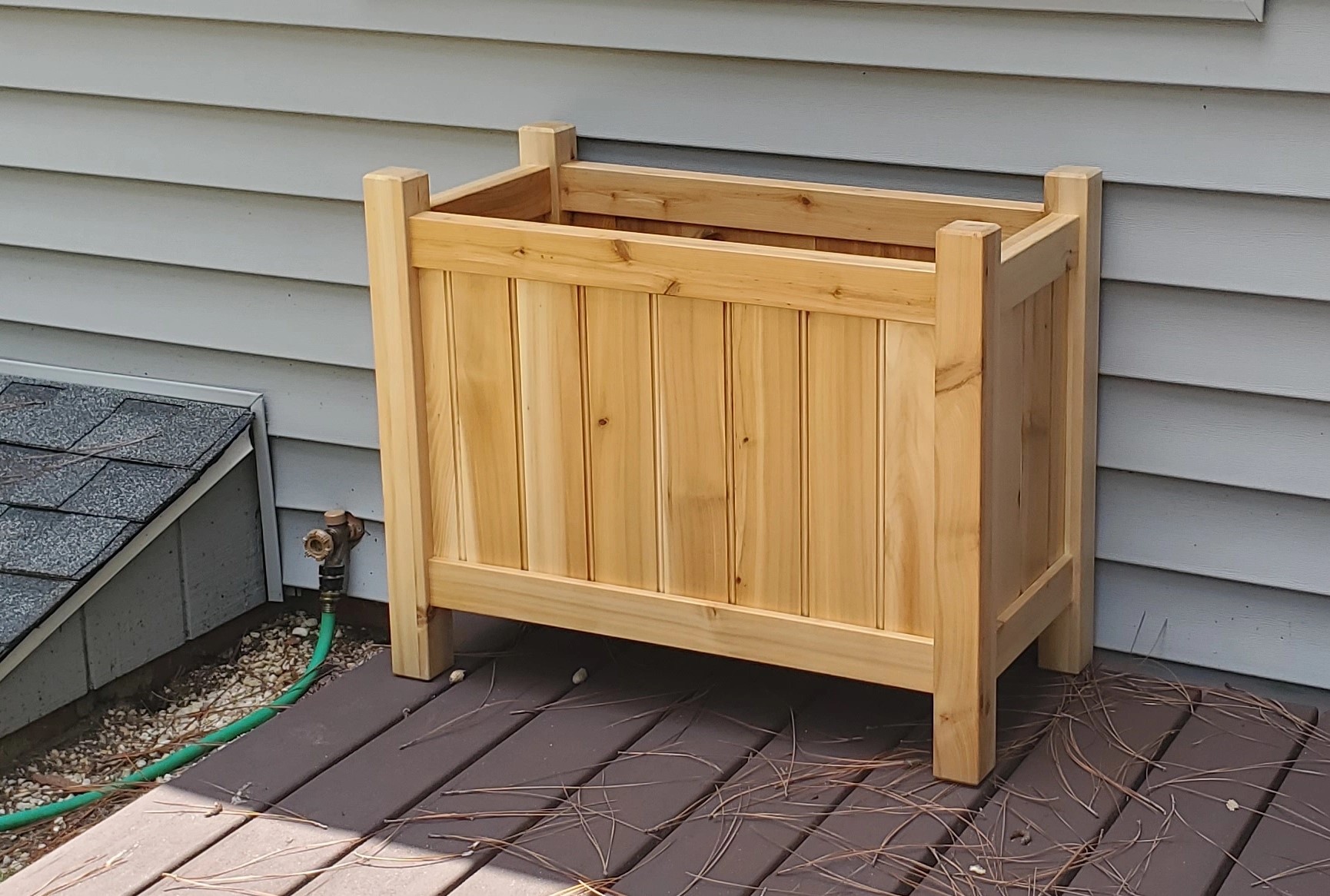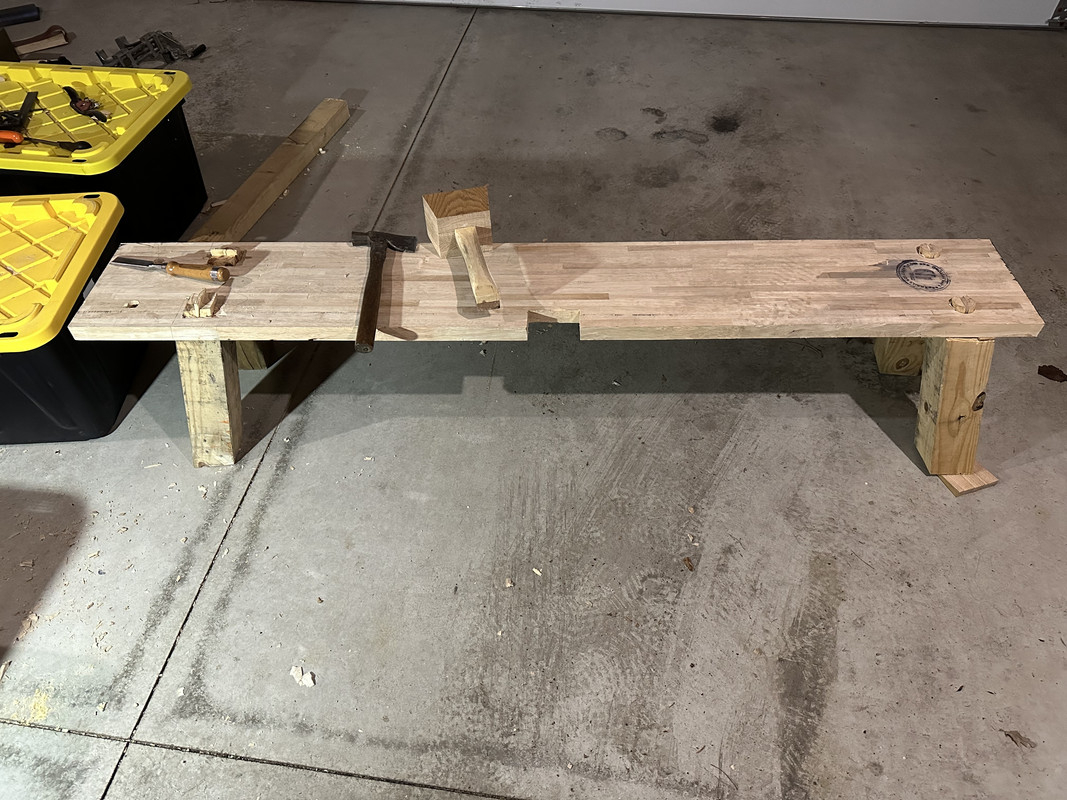I made a low Roman bench out of a piece of bowling alley that was being trashed and some old fence posts. I fitted the legs with slanted mortise and tenon joints and realized that was a lot of work, so I did the other side with bored out round mortise and tenons, which was somewhat easier. There is a notch in place of a full vice, and I mad e a “crochet hook” attachment for wedging up large boards for edge planing, but it split so I’ll need to figure out a different grain direction.
More pics:
I also made a new joiners mallet. My other one’s handle broke because it was pretty soft. The head is a chunk of 3” thick red maple that I’ll use to make my full-sized bench top, and the handle is something dense (oak?). I had to slim down the end of the handle so it would fit through the head. I cut the curve of the handle by cross-cutting lines and then chunking them off with a hatchet and smoothing it off with a spokeshave.
I didnt have an actual mortise chisel, so I essentially had to chisel out the whole mortise. I plan to go back and clean up the fit a little better and smooth out the edges later. I’ll use both of these to make a larger bench to work with, and use the Roman bench as a sawhorse.
Pics:



Yeah it’s convenient for some things, but not ideal for others. I might modify it by putting pegs into each leg to hold them in better, because the actual joints arent that good. Besides adding a crochet hook, some people add an attachment to hang down from the edge with the crochet hook to support longer boards with pegs, but I won’t know if that’s necessary until I use it more. The holdfasts dont grip well because it is so shallow, so I’m going to add some scratches to the holdfasts to see if the texture gives some better grip.
I’ll also add a couple more holdfast holes somewhere in th middle for sawing. Near the end of the bench where they are now, the saw sometimes bumps the leg that is protruding outward.